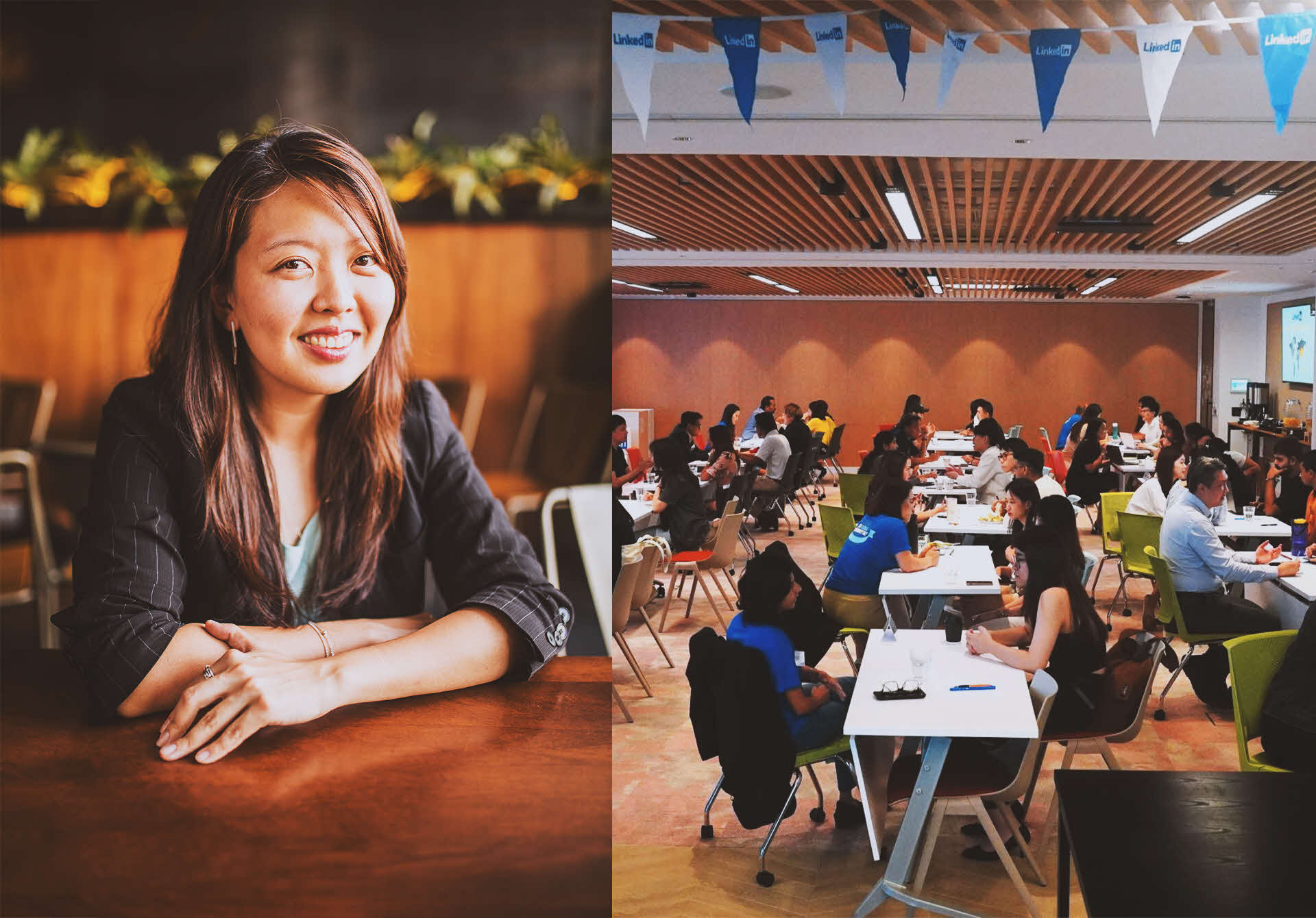Forget labels like ‘Gen Z’ and ‘do-gooder’ — this young CEO believes everyone can create positive impact
BY DBS, 4 DEC 2023

Being in the business of nurturing the potential in youth, it perhaps comes as no surprise that Ivy Tse is not a fan of labels.
A fixation on labels or fixed narratives creates the pressure to find one’s calling early in life, even though a calling isn’t something that “you wake up one day and you already know this is the life path for me,” says Ivy, who is CEO of Halogen Foundation, a non-profit in Singapore focused on youth mentoring and development.
“It is a source [of pressure] that sometimes drains a lot of young people because they hold themselves to the bar of, ‘I better know what I'm doing’,” she says. “And quite honestly that was the narrative that I had for myself.”
After graduating university, Ivy dived into the corporate world, chasing the dream career she had envisioned for herself. Little did she expect to feel “de-energised” by her work; she could not shake the nagging sensation that she could be doing something else more impactful, and she questioned her lack of “clarity”.
Looking back, her “quarter-life crisis” was “quite normal”, but Ivy remembers feeling lost and “just a bit desperate”. So when the opportunity came to join Halogen Foundation, she went for it. “If I'm going to spend 40, 50, or even 60 years working in a career, what's five or six years of experimentation?” she reasoned.
“In all honesty, I thought, I will just try and then move on. But I've been there for 11 years and have not looked back yet.”
Working with youth
Although much ink has been spilled on the differences between Gen Z and their predecessors, Ivy prefers to not to “pigeonhole” people. “I believe the innate motivations for every single person is the same: we want to be able to, after we settle our basic needs, be able to contribute to impact someone else's life positively, however big or small,” says Ivy.
The assumption about youth in Singapore, says Ivy, is that they have grown up with the opportunities to explore their interests, “and we assume that with the exposure and information, they know how to process it.”
“But at the end of the day, as they are moving from school to work, they are just like you and I back then, when we were looking at how do we transit, or understand some of the values that we want to hold in the workplace, [and] what's the role of a vocation or a job in the grander scheme of our lives?” she says.
So instead of focusing on the differences, look instead to adapting to different styles of communicating and understanding the struggles that put a strain on youth mental health. “What I've always been very encouraged by is when you sit down and have an honest conversation about it, [and] show young people that you are here to actually journey with them…I find that they've always risen up beautifully to show that they have the potential and they're ready to dig deep and make sacrifices,” says Ivy.
Everyone has the potential to do good
The instinct to limit ourselves with labels cuts across generations – through her work, Ivy has met people of all stripes and ages who wonder if they have what it takes to devote their lives to doing something socially impactful.
But most times, people see “doing good” in a way that ignores the realities of the non-profit space. “Doing good alone doesn't just solve all the issues. In fact, you need more than that intrinsic motivation. You still need to deal with the pragmatics. You still need to build skills in order to actually make a substantive change to the causes or the issues that you feel passionate about.”
Ultimately, it is more important to use the time one has, wherever they happen to be – for example, a person in a corporate setting could have good access to CSR and volunteering programmes, such as People of Purpose, DBS’ employee volunteer movement. “The causes that we're trying to advocate for – environmental, sustainability – you really need effort from multiple folds,” says Ivy. “We want people who can leverage resources…who can cross apply some of their private sector skills to make an impact for the causes that they believe in.
“I see the potential of doing good just lying within every sphere of what you do.”